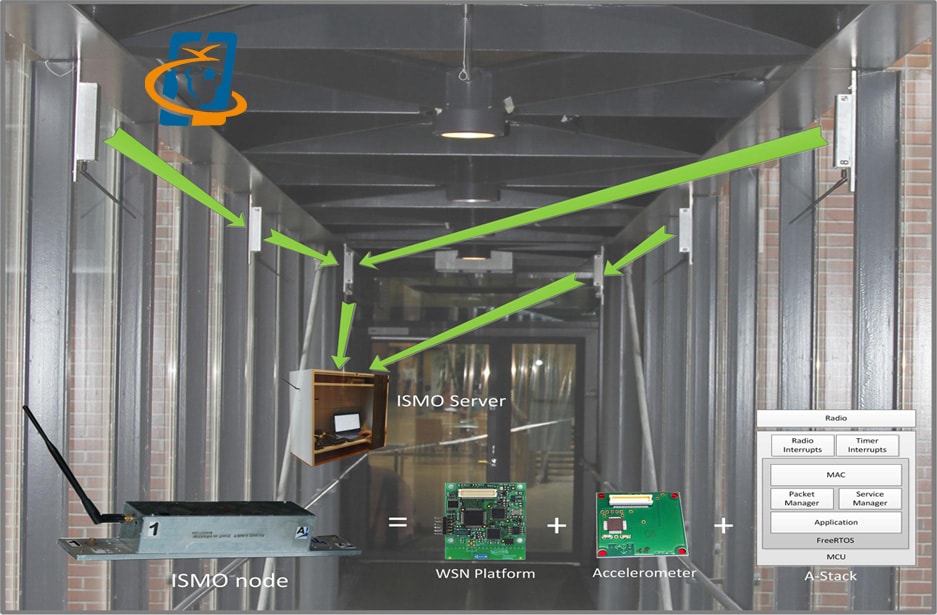Overview
A wireless sensor network are spatially distributed autonomous sensors to monitor physical or environmental conditions,such as temperature, sound, pressure, etc. and to cooperatively pass their data through the network to a main location. The more modern networks are bi-directional, also enabling control of sensor activity. The development of wireless sensor networks was motivated by military applications such as battlefield surveillance; today such networks are used in many industrial and consumer applications, such as industrial process monitoring and control, machine health monitoring, and so on.

Course Details
EMBEDDED SYSTEMS
- Introduction of Embedded System
- Evolution in Microcontroller technology
- Past, Present & Future of Embedded System
INTRODUCTION OF EMBEDDED C
- Introduction to Embedded C
- Difference between C & Embedded C
- Data type of Embedded C
- Operators of Embedded C
- Statements & loops of Embedded C
HELLO, EMBEDDED WORLD
- Installing the AVR Studio software and loading the project
- Configuring the simulator
- Building the target
- Running the simulation
- Advance C Language
- AVR Studio
- WINAVR C
- Code Vision AVR
INTRODUCTION TO MICROCONTROLLER ARCHITECTURE
- Memory based architecture
- Classification of Von-Neumann and Harvard Architecture
- Difference between RISC and CISC
- Memory Classification (Primary & Secondary)
Session.2
MICROCONTROLLERS
- Different Types of microcontrollers
- AVR
- Types of AVR microcontroller
- ATmega8 , ATmega16
- Pin description of AT mega 16 microcontroller
- Architecture of AT mega 16 microcontroller
I/O PORT OPERATIONS IN AVR
- Register Concept
- GPIO PINS
- DDRx , PINx , PORTx
DISPLAY DEVICES
- Introduction to display devices
- Different types of display devices
- Need of the display devices
- LCD Instruction set
- LCD hardware configuration
- Interfacing LCD (16*2)
- Display the Character
- Display the Name
- Display the Number
5. Electronic Speed Controller (ESC)
Introduction to ESC
- Speed Control Techniques
- Data Signaling to ESC
- Ampere Rating of ESC
- Control Motor through ESC
- Input Supply Considerations
- Programming ESC
DAY 2
Session 3
INTRODUCTION TO SENSING DEVICES
- IR sensor
- Circuitry and Functioning of IR Sensor
- Accelerometer
- Hands On Gesture Technology
INTRODUCTION TO INTERRUPTS
- What is Interrupt?
- Interrupt handling
- Application
- Registers of interrupts of different modes
- Programming on AVR Interrupts
ADC INTERFACING FOR SENSORS
- What is ADC?
- 10 bit ADC
- Why is Important?
- Description of ADC registers
- Presales in ADC
- 8 Channel ADC
- Interfacing with LCD
- Interfacing accelerometer with ADC
Session 4.
COMMUNICATION USING AVR MICROCONTROLLER
INTERFACING UART & USART
- Types of Communication Protocol
- Difference between various Communication Protocol
- USART Vs. UART or Programming USART
INTRODUCTION TO WIRELESS COMMUNICATION
- Discussion on various wireless modules
- Working of wireless communication
- Difference between Serial and Parallel communication
GSM MODULE
- Introduction of GSM
- Application of GSM
- How to use XTU Software?
- Configuration of GSM
- Interfacing GSM using TTL
X-BEE MODULE
- Types of X-Bee
- Application of X-Bee
- Interfacing X-Bee with X-Bee Trainer Board
- How to use XTU Software?
- MAJOR PROJECTS
- STUDENTS QUERY
- QUIZ COMPETITION
- CERTIFICATE DISTRIBUTION
- Running LEDs
- Sand Glass Filling Of LEDs
- Decoration LEDs/LED Patterns etc
- Making Rain Drop Pattern
- Making a counter using IR sensor
- Display Counting On LCD
- Display Hexadecimal Number On LCD
- Display Binary Number On LCD
- Read ADC Value From Microcontroller
- Display ADC Value Using Interrupt
- Hands On XCTU Software
- PC-μC Full Duplex Communication
- μC to PC Communication
- UART & USART Interfacing
- Interfacing Your GSM Module Using TTL
- Hands on XCTU Software
- Sending SMS Using XCTU Software
- Sending SMS Using GSM Module
- Phone Call Using GSM Module
- Configuration of Zigbee on XCTU software
- Sending data Using Zigbee
Register Now
Our Technologies








